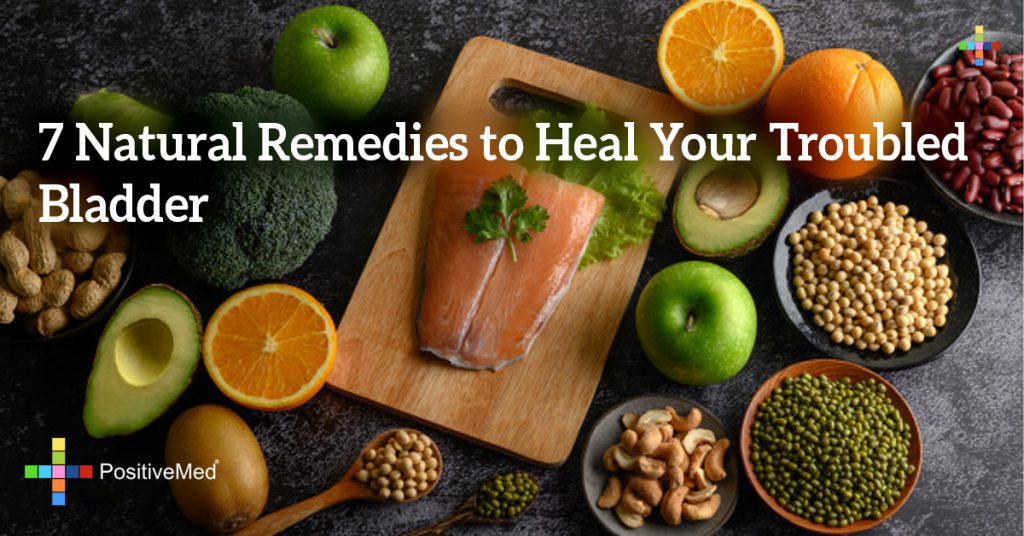
The bladder. We may complain about our creaky joints, moan about our aching muscles, and harp on our unending heartburn, but the bladder is one troublesome system most people pay precious little lip service to.
However, bladder problems — from incontinence to infection to pain — afflict millions of more people than many realize; in the United States, more than 13 million Americans regularly experience issues with bladder control, let alone the dozens of other bladder maladies that exist.
Fortunately, though most people are remiss to discuss their urinary troubles, there are a handful of discreet natural treatments that resolve most bladder distress.

Targeted Exercise
The pelvic floor is a thick layer of muscles below the pelvis which hold and control a person’s lower-body organs, but after time (and certain activities, like or childbirth) the pelvic floor can become weak, which leads to problems. Incontinence is the most common side effect of a weak pelvic floor, but symptoms also include an inability to urinate and pain during lovemaking.
Fortunately, there is an easy trick to keeping one’s pelvic floor in tip-top shape: Kegels. Kegel exercises require the flexing of the muscles one uses to start and stop urinating. This seemingly simple squeezing is enough to strengthen and tone the pelvic floor. There are even plenty of different kegel workout plans that target different functions of the pelvic floor for improved control.
Magnesium
Critical for the proper function of muscles and nerves, magnesium has also been shown to improve various bladder issues. Increased consumption of magnesium leads to less urgency and better control.
Experts believe that these positive effects stem from magnesium’s ability to stabilize muscles; bladder spasms are a common cause of incontinence, and soothing the muscles around the bladder with proper nutrition likely produces more urinary comfort. The best way to take in extra magnesium is through foods, like corn, potatoes, and bananas, but magnesium supplements are available at nearly every pharmacy.
Stinging Nettle
What most modern gardeners see as a pesky weed was once revered as a powerful medicine. Through the centuries, stinging nettle has been documented as a stimulant, an anodyne, an astringent, an anti-histamine, and others, but more than anything else, nettle leaf is recognized as a useful diuretic.
Plenty of herbalists love the plant for its soothing effects on the prostate, which can cause painful urination experiences. While the herb can be eaten as a seasoning or vegetable, most enthusiasts prefer to drink nettle leaf tea as a calming treatment.
Corn Silk
To many, the fine yellow threads that surround an ear of corn are nothing but a nuisance, but to those who suffer from urinary troubles, those fibers can be a godsend. One of the most ancient medicines, corn silk remains a widely used natural remedy for basic bladder distress.
Most commonly, corn silk is used to target infections because it contains certain diuretic chemicals which flush the urinary tract. Most vets advocate corn silk to pet owners whose dogs suffer urinary problems , including incontinence and infections.
Saw Palmetto
The saw palmetto is a small variety of palm tree that produces tiny berries. Several studies claim these berries have shown to mitigate urinary problems, especially those experienced by men with enlarged prostate glands. Saw palmetto seems to reduce inflammation and lower testosterone levels, which both help the prostate to subside and urination to become easier. Sufferers can find saw palmetto most easily in the supplements aisle of their local supermarkets or health food stores.
Horsetail
More than 400 million years ago, the colossal ancestors of the horsetail fern towered over the land, stretching hundreds of feet into the air. Today, giant horsetails (or el tactical as the plant is sometimes known) can still reach above 60 feet under the right conditions. This excessive growth is a boon to urinary sufferers, who can make good use of its natural medicine to soothe urinary distress.
Horsetail is a strong diuretic, and it can also act as an anti-inflammatory and an antioxidant, which makes the supplements and infusions particularly good at fighting urinary infections.
Vitamin D
Currently, one of the most popular vitamins, vitamin D has lately become a cure-all for wide-ranging types of medical disorders. Yet, some studies have shown that increased vitamin D intake has a lasting positive effect on the bladder.
Women who boast normal levels of vitamin D are dramatically less likely to ever develop pelvic floor or urinary disorders. The easiest way to get enough D is by stepping outside — 10 minutes of midday sun every day should be enough for most light-skinned people.







